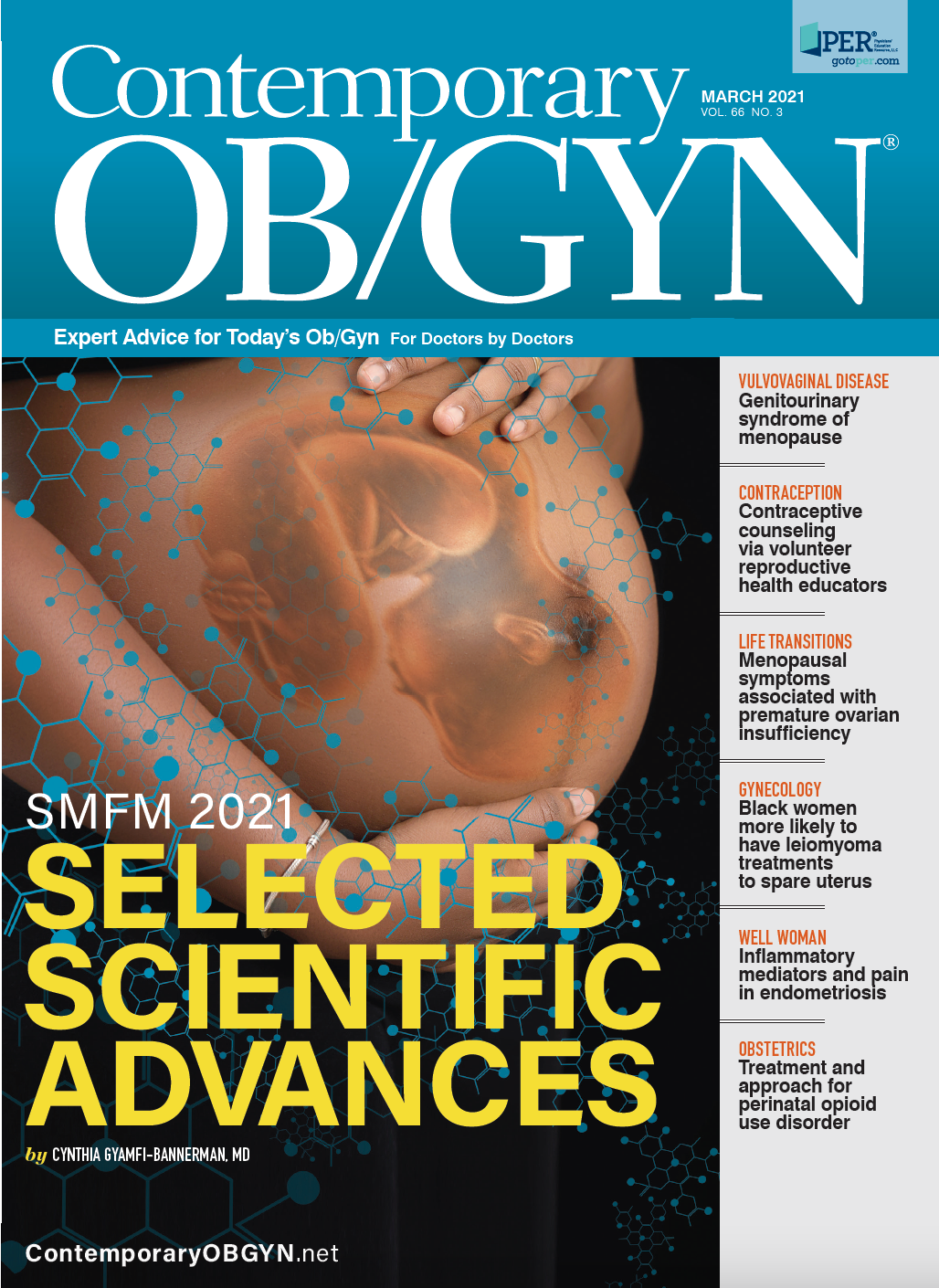Contraceptive counseling via volunteer reproductive health educators
Initiation of more effective contraception occurred more often among patients who were seen by a volunteer reproductive health educator during routine visits at a resident obstetrics and gynecology clinic, according to a study published in Maternal and Child Health Journal.
“We were curious if we could augment the breadth and depth of contraceptive counseling available to patients seen in our resident continuity clinic,” said co-principal investigator Mary Tschann, PhD, MPH, who at the time of the research was an adjunct assistant research professor of ob/gyn and women’s health at the University of Hawaii in Honolulu.
Co-principal investigator Mary Tschann, PhD, MPH,

“Recognizing that clinicians are always pressed for time, and aware of the benefits of a team-based approach to healthcare, we wanted to know if a well-trained group of volunteers, who we dubbed reproductive health educators (RHEs), could complement the clinicians’ work and provide more comprehensive and tailored counseling to patients than the clinicians could afford to do with their busy schedules.”
RHEs were undergraduate and graduate students from the University of Hawaii at Mānoa who were pursuing degrees and/or careers in the health sciences.
The observational study compared baseline chart review data (all patients, aged 14 to 25, seen in the clinic from January to December 2015, representing 726 visits among 248 patients) to data collected during the RHE intervention (75 patients, each with a single visit from January to July 2016).
RHE educational sessions with the intervention group added a mean 15 minutes to the visit, ranging from an additional 5 to 60 minutes.
In the intervention group, 64% of patients arriving with no method elected to initiate a short-acting reversible contraceptive (SARC) or long-acting reversible contraception (LARC) method during their visit, compared to 48% of patients in the baseline group.
“We anticipated that counseling would be more thorough with dedicated counseling from the RHEs, but we were uncertain if it would change contraceptive prescribing or initiation,” Tschann told Contemporary OB/GYN®.
RHEs were a cost-effective and beneficial addition to the care team, according to Tschann. “Adding dedicated contraceptive counseling staff or volunteers to a generalist ob/gyn clinical practice could give patients more tailored support, while also freeing up clinicians to meet their clinical load,” she said.
The study authors are now analyzing qualitative feedback from the residents, attendings and RHEs to better understand how to optimize this kind of intervention. “We expect our findings will help us refine the scope of content the RHEs are responsible for, which could reduce the time and costs associated with their training,” said Tschann, who is currently senior clinical affairs manager at the Society of Family Planning.
Integrating RHEs into clinic flow was critical to the success of the intervention, as was flexibility in the design. “RHEs could see patients at any point during their visit, and worked in close contact with the medical assistants, residents and attendings to ensure they were an asset to the patient’s visit,” Tschann said.
Careful planning with the clinic leadership and practice runs with the staff can help identify potential barriers before RHEs are formally introduced.
__
Disclosures
Tschann reports no relevant financial disclosures.
Source
Tschann MS. Elia J. Salcedo JL. Achieving comprehensive contraceptive counseling for young women and improved contraceptive uptake through the implementation of a reproductive health educator program. Matern Child Health J. Published online November 13, 2020. doi:10.1007/s10995-020-03038-7

Newsletter
Get the latest clinical updates, case studies, and expert commentary in obstetric and gynecologic care. Sign up now to stay informed.
Recap on reproductive rights with David Hackney, MD, MS
December 20th 2022In this episode of Pap Talk, we spoke with David Hackney, MD, MS, maternal-fetal medicine physician at Case Western Reserve University and chair of ACOG's Ohio chapter for a full recap of where restrictions on reproductive rights have been and where they're going.
Listen
In this episode of Pap Talk, Gloria Bachmann, MD, MSc, breaks down what it means to be a health care provider for incarcerated individuals, and explores the specific challenges women and their providers face during and after incarceration. Joined by sexual health expert Michael Krychman, MD, Bachmann also discusses trauma-informed care and how providers can get informed.
Listen
